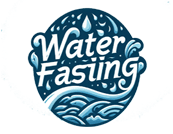Introduction:
Many people see water fasting as a quick way to lose weight, detox the body, and gain mental clarity. While short-term fasting can be beneficial, unsafe prolonged water fasting can turn dangerous if done without guidance. Your body needs fuel to function, and depriving it for too long can lead to nutrient loss, dehydration, and serious health risks. This 600-word article explains the dangers of unsafe prolonged water fasting in a unique, step-by-step, and question–answer format — keeping the keyword water fasting highlighted throughout.

Main Points About Unsafe Prolonged Water Fasting
- What Is Water Fasting?
Water fasting is when you consume only water for a certain time — usually 24 to 72 hours. This helps your body rest, detoxify, and reset. However, extending it beyond a safe limit can push your system into survival mode. - Why Prolonged Water Fasting Becomes Unsafe
The body stores limited nutrients. During water fasting, it burns fat for energy, but prolonged fasting causes it to break down muscle and tissue, leading to weakness and organ stress. - Nutrient and Electrolyte Imbalance
Unsafe water fasting depletes electrolytes like sodium, potassium, and magnesium. This imbalance can cause dizziness, muscle cramps, irregular heartbeat, and fainting. - Impact on Organs
The liver and kidneys play a major role in detoxing the body. Without nutrients, water fasting can overwork these organs, causing fatigue, dehydration, and in extreme cases, kidney injury. - Mental and Emotional Effects
Prolonged water fasting not only weakens the body but also affects mental health. Low energy levels can cause mood swings, anxiety, confusion, and even depression. - Risk of Refeeding Syndrome
After unsafe water fasting, reintroducing food suddenly can cause a dangerous condition called “refeeding syndrome,” where rapid nutrient intake shocks the body, leading to cardiac and metabolic issues.
Step-by-Step Guide to Avoid Unsafe Water Fasting
Step 1: Understand Your Limits
Never attempt water fasting for more than 48–72 hours without professional supervision. Every body has different tolerance levels; pushing too far can be life-threatening.
Step 2: Prepare Before Fasting
Reduce caffeine, sugar, and processed foods 2–3 days before fasting. This helps your body adjust and minimizes withdrawal symptoms during water fasting.
Step 3: Stay Properly Hydrated
Drink clean water consistently, but avoid overdrinking — too much water without electrolytes can cause dilutional imbalance.
Step 4: Listen to Warning Signs
Dizziness, headache, confusion, or irregular heartbeat are red flags. Stop water fasting immediately if you experience these symptoms.
Step 5: Reintroduce Food Gradually
After ending water fasting, start with liquids like soups, fruit juices, or smoothies. Avoid eating large or heavy meals right away.
Step 6: Get Medical Advice
If you plan to extend your water fasting beyond three days, consult a healthcare professional. Supervision helps prevent dangerous nutrient depletion and organ strain.

Questions and Answers About Unsafe Prolonged Water Fasting
Q1: How long is safe for water fasting?
A: Short-term water fasting (24–48 hours) is generally safe for healthy adults. Anything longer becomes unsafe without medical monitoring.
Q2: What are the first warning signs of unsafe water fasting?
A: Persistent fatigue, dizziness, dehydration, or heart palpitations are signs your body is under stress during water fasting.
Q3: Can prolonged water fasting damage the body?
A: Yes. Prolonged water fasting can weaken muscles, harm the kidneys, and cause dangerous drops in blood pressure and electrolytes.
Q4: Why do some people collapse during water fasting?
A: The body loses essential salts and energy, leading to low blood sugar and low pressure. This makes water fasting unsafe if continued too long.
Q5: What’s a safer alternative to long water fasting?
A: Try intermittent fasting (like 16:8), which allows you to fast safely while still eating nutritious foods daily. It provides benefits without the dangers of unsafe water fasting.
Water fasting can be an effective way to detox and refresh your system — but only when done safely and in moderation. Unsafe prolonged water fasting can harm your organs, disrupt your metabolism, and leave lasting damage.
Remember: fasting is a tool, not a punishment. Your goal should be balance, not deprivation. The safest approach is guided fasting — short, mindful, and medically supervised. Protect your body’s strength, nourish it wisely, and let water fasting be your path to wellness, not weakness.

